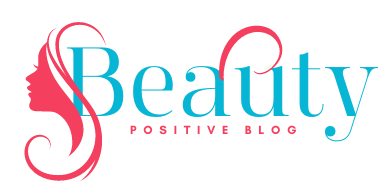In a world that’s constantly buzzing with notifications, deadlines, and digital distractions, our minds can start to feel as cluttered as our closets. It’s no wonder that many of us feel overwhelmed, stressed, or emotionally drained. But what if the path to mental clarity and emotional healing begins not with doing more, but with doing less—starting with decluttering both our physical space and mental load?
Whether you’re working with a Lyra therapist or embarking on a solo self-care journey, understanding the connection between your environment and your mental state is a powerful first step toward healing.
The Link Between Clutter and Mental Health
We often underestimate the psychological weight of clutter. Messy spaces don’t just create visual chaos—they contribute to a sense of anxiety, guilt, and distraction.
How Clutter Affects Your Mind
- Cognitive overload: Visual clutter competes for your attention, making it harder to focus.
- Emotional strain: Clutter can be a constant reminder of tasks left undone, triggering stress.
- Decision fatigue: Too much stuff means more choices, which can quickly become exhausting.
Scientific Backing
A study from UCLA’s Center on Everyday Lives of Families found that high cortisol levels (the stress hormone) are directly linked to the density of household items, especially in women. Simply put, the more stuff we see, the more stressed we feel.
Minimalism as a Path to Emotional Healing
Minimalism isn’t just about stark white walls or tossing out your belongings. It’s about intentionally choosing what adds value to your life—and letting go of what doesn’t. This intentionality is at the heart of psychological healing.
Mental Benefits of Minimalist Living
- Clarity: A simplified environment leads to a clearer mind.
- Calm: Fewer distractions mean reduced anxiety.
- Control: Making deliberate choices about your surroundings empowers you.
Minimalism gives you the space—both physically and mentally—to process emotions, reflect on your needs, and engage in meaningful self-care practices.
Practical Ways to Declutter for Mental Clarity
Healing through decluttering doesn’t require a complete home makeover. Start small and build momentum with these simple, actionable tips:
1. Start With a Single Space
Pick one area—a drawer, your bedside table, or your workspace—and clear it out. Choose only items that are useful or bring you joy. This quick win will motivate you to keep going.
2. Apply the “One In, One Out” Rule
For every new item you bring into your space, let go of one existing item. This helps prevent future clutter and encourages thoughtful consumption.
3. Create a Mental Declutter Routine
Just as you tidy your home, make time to clear your mind. Try journaling for 5 minutes a day, practicing mindfulness, or setting digital boundaries (e.g., no phones in bed).
4. Address Emotional Clutter
Sometimes, what weighs us down isn’t visible. Old regrets, toxic relationships, or unresolved conflicts can pile up. Consider seeking support from a Lyra therapist to work through emotional baggage in a safe, structured environment.
5. Make Self-Care Non-Negotiable
As you make space externally, create rituals that nourish you. A minimalist approach to self-care might mean:
- A calming skincare routine
- Ten minutes of quiet reading
- A walk without your phone
- Saying “no” without guilt
Creating a Healing Environment
Your surroundings deeply affect your mood and mindset. Here’s how to design a space that promotes peace and psychological well-being:
Use Natural Elements
Bring in plants, natural light, and earthy tones to create a calming atmosphere.
Embrace White Space
Negative space (areas without objects) is visually restful and allows your brain to breathe.
Personalize Intentionally
Keep a few meaningful items—photos, souvenirs, books—that evoke joy or comfort. Let your space tell your story without overwhelming it.
The Ripple Effect of Decluttering
When you clear physical clutter, you begin to notice shifts in other areas:
- Improved sleep: A tidy bedroom supports deeper rest.
- Better relationships: A calmer mind enhances communication and empathy.
- Increased productivity: Clarity at home often leads to clarity at work.
Decluttering becomes more than a task—it becomes a tool for transforming how you live, think, and feel.
Final Thoughts: Healing Is a Process
Clearing clutter isn’t a one-time fix. It’s an ongoing practice of letting go and choosing simplicity, both in your surroundings and your mindset. The goal isn’t perfection; it’s peace.
Whether you’re just starting or already deep into your healing journey, working with a Lyra therapist can help you navigate the emotional layers that often surface during this process. Pairing minimalist principles with therapeutic support can accelerate your path to a more balanced, mindful, and mentally free life.
Remember: healing begins when we make space for it—inside and out.







